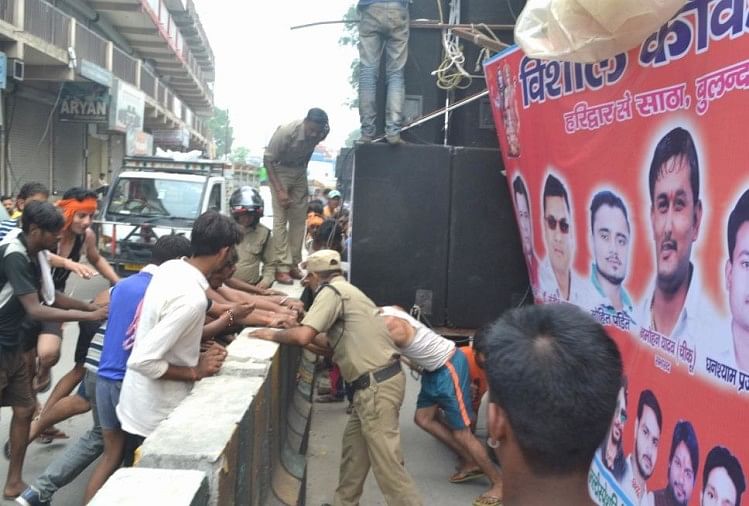The Supreme Court has issued a stay on a contentious directive from the Uttar Pradesh government, which required eateries along the Kanwar Yatra route to prominently display the names of their owners and employees. This order, announced earlier this month, faced significant backlash from various quarters, leading to its suspension by the highest court.
The Uttar Pradesh government’s directive aimed to enhance security and ensure accountability during the annual pilgrimage. However, it has been criticized for potentially infringing on privacy and placing undue burden on local businesses. The requirement mandated that establishments along the route, which sees a significant influx of devotees, display a list of their staff members and proprietors in a visible location.
Critics argue that this measure could lead to privacy violations and create a chilling effect on business operations. They also highlight concerns about the feasibility and cost implications for small and medium-sized businesses. The order’s enforcement would have necessitated additional administrative work and modifications to existing signage, which many business owners felt was both impractical and intrusive.
The Supreme Court’s intervention came as a relief to many local entrepreneurs and advocacy groups who had challenged the order. Their arguments centered on the assertion that the directive was not only excessive but also lacked clear justification in terms of its effectiveness in enhancing security. The petitioners emphasized that while security is a paramount concern, the methods employed should be balanced and not disproportionately affect small businesses.
The government has been prompted to reassess the policy in light of the court’s ruling. Discussions are expected to continue regarding alternative measures that could achieve the intended security objectives without imposing unreasonable demands on business owners. The stay order has provided a temporary reprieve for eateries and has opened the door for potential revisions to the policy.
As the Kanwar Yatra approaches, both the government and local businesses await further developments. The ruling underscores ongoing tensions between security measures and individual rights, highlighting the need for policies that respect both safety and personal privacy. The case has sparked broader debates about the balance between public safety and business regulations, reflecting concerns that are relevant beyond the immediate context of the Kanwar Yatra.
Legal experts suggest that the Supreme Court’s stay could lead to a more nuanced approach to policy implementation in the future. The court’s involvement highlights the importance of judicial oversight in ensuring that governmental measures do not overstep their bounds or infringe upon fundamental rights.
With the stay in place, the focus will likely shift towards finding a compromise that addresses security concerns while mitigating the impact on local businesses. This situation serves as a reminder of the complexities involved in balancing administrative requirements with the practical realities faced by small enterprises, especially during large-scale public events.
The outcome of this case may set a precedent for how similar issues are addressed in the future, reflecting the evolving dialogue between regulatory authorities and the communities they serve. As the situation develops, stakeholders will be closely watching for any further legal or administrative actions that may arise from this contentious issue.




 Economic Survey Forecasts Strong Growth, Infrastructure Growth
Economic Survey Forecasts Strong Growth, Infrastructure Growth 